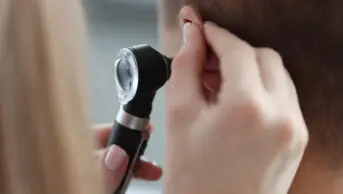
Shutterstock.com
The Pharmacy First consultation threshold for monthly £1,000 payments has been reduced to 20 consultations for October 2024, Community Pharmacy England (CPE) has announced.
The threshold is the number of consultations participating pharmacies must complete per month to trigger a £1,000 monthly payment, which was due to increase to 30 consultations in October 2024.
The threshold has been rising each month following the Department of Health and Social Care (DHSC)’s pre-planned schedule. However, in a statement published on 30 September 2024, CPE said: “We have been discussing this issue over the last few weeks with the DHSC and NHS England, and ministers have now decided that they intend to reduce the October threshold for the Pharmacy First service to 20, in light of the concerns that we have raised.”
The decision follows a similar one taken to cut the planned threshold for consultations in August 2024 from 20 consultations to 15 consultations.
Analysis of NHS Business Services Authority (NHSBSA) data by The Pharmaceutical Journal revealed that community pharmacies have missed out on almost £10m in funding since the launch of Pharmacy First on 31 January 2024 because they have not been hitting monthly thresholds.
The analysis, published in September 2024, revealed that 9,600 pharmacies in England missed the consultation threshold to qualify for the monthly fixed payment of £1,000 between February 2024 and May 2024.
The data showed that some of the pharmacies that missed out on the funding did so because they had not signed up to the service.
Janet Morrison, chief executive of CPE, said: “It is great that ministers have responded to our concerns about another increase to the Pharmacy First payment threshold: this decision will save many community pharmacies from missing out on a vital payment this month.”
Malcolm Harrison, chief executive of the Company Chemists’ Association (CCA), commented: “[The CCA is] pleased that NHS England have decided to reduce the October threshold for the Pharmacy First service to 20.
“This is something that the CCA has been discussing with stakeholders in recent months. Using our members’ data, we have been able to demonstrate the need to lower the threshold and continue to give the sector time to deliver the new service.
“We now need NHS England to turbocharge GP referrals and promotion of the service to the public, especially as we enter into the winter period.”
Gareth Jones, head of corporate affairs at the National Pharmacy Association said: “Our members have already given convenient care to many people through Pharmacy First. They shouldn’t be left out of pocket because of rigid thresholds, when they have invested time and money in making this programme work.
“Targets should act as an incentive, not as a disincentive to engage with the service.
“It’s good that the government has acted on concerns about ratcheting up the threshold in October, but this is a short-term measure that doesn’t give pharmacies the certainty they need to plan and invest.”
The NHSBSA has also set out caps on the number of Pharmacy First consultations that pharmacies can carry out to receive the £15 consultation service fee from 1 October 2024.
Pharmacies will be put into one of six bands depending on how many Pharmacy First consultations they carried out from May to July 2024. In the lowest band — band one — pharmacies that carried out a monthly average of fewer than 15 Pharmacy First clinical pathway consultations will be entitled to be paid for up to 130 consultations per month for the next three months.
Band six pharmacies, which have carried out an average of 34 or more consultations between May and July 2024, will be able to claim for 507 consultations per month until December 2024.
Commenting on the cap numbers, Harrison said: “As they currently stand, the caps appear reasonable.
“However, as GP referrals and patient awareness grows and Pharmacy First consultations rise too, caps will need to be reviewed regularly, to avoid any scenarios where patients cannot access care from their preferred pharmacy.”


